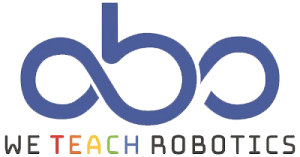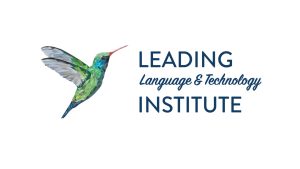Introduction
We welcome teachers, primary and secondary school teachers for our experiential training.
Participants will learn about stop motion animation. We combine drawing and craft activities with mobile phone photography, storytelling and sound design.
Teachers will be trained in the tools and types of tasks to prepare for children of different ages.

Description
Stop motion animation filmmaking is a complex workflow that goes beyond individual subjects and fields of education, integrating different fields.
The training consists of 3 units:
- Introduction to the basics of stop motion animation and its application in schools
- Filmmaking in groups, from preparation to post-production (personal experience)
- Summarising experiences, discussing future (school) plans
Experience-based work, i.e. the steps of filmmaking:
- Technical preparations: lighting, tripods, materials and equipment
- Story development, drawing of the script
- Character and background design, construction
- Animation, shooting
- Retouching, editing
- Production of subtitles
- Sound design: dubbing, sound effects, music
- Poster design and film presentation
There are many skills, abilities and knowledge that can be applied when telling a story or working through subject knowledge.
While creating scenes, narrative skills and insight are developed.
Drawing, paper cut-outs, spatial elements and figures develop drawing skills, a sense of colour and shape, manual dexterity and fine motor skills.
While making the pictures, you will learn lighting, photography and IT skills and solve a number of technical problems. You need a sense of rhythm and fine motor skills while moving.
As films cannot exist without sound, there are also tasks such as writing, acting and music.
Communication and social skills are also developed through group work. It also means that the children involved in filmmaking can contribute their own strengths to the collective success, which they can experience by screening the film in front of an audience.
By merging the learning and creative process, and by using manual and digital techniques simultaneously, children also develop media literacy and media awareness.
Learning objectives
The aim of the training is to familiarise participants with stop motion techniques and to prepare them for making films with children. The training will introduce them to a technique that can be used to develop their visual culture, media literacy, manual dexterity, sense of rhythm, self-expression and communication skills.
Participants in the training
Learn the workshop techniques of stop motion filmmaking.
They will learn about the tools and software that may be needed during filmmaking. How to set up an “animation studio” with children.
They will get a taste of paper cut-out (2D) and object and puppet moving (3D) film techniques, the world of cinematographic typography and sound design.
They will be given guidelines on how to work in a 45-minute class or on a longer project.
How to work on a literary or fictional story, or how to use animated filmmaking to deepen the learning of the subject.
To learn about the history and present of stop motion.
Methodology and assessment
Experience-based training, delivered by teacher(s) in animation and art education who regularly work with Abacusan Studio.
Our lead instructor is a graphic designer and stop motion animator has 18 years of teaching experience in graphic and animation design in vocational training courses, primary and secondary schools. She regularly holds workshops and camps.
This technique can be used by teachers of any specialisation – teachers, day-care or leisure programme leaders – but is especially recommended for visual culture and media studies teachers. Stop motion filmmaking can be used not only for storytelling your own story or based on literature, but also to deepen subject knowledge (e.g. history, biology, chemistry).
There are no prerequisites for the training, neither drawing nor photography skills are required.
Thematics:
Day 1
- Getting to know each other, team building
- History, techniques and possibilities of stop motion in education
- Lights, tripods and other equipment – how to build an “animation studio” easily and cheaply
- Stop motion applications
- My first short film – simple object motion animation
Day 2
- Dramaturgy and methodology of storytelling
- Dramaturgy and methodology of communicating information
- Setting up teams – groups of 2-3 people
- Story development
- Scriptwriting
Day 3
- Figure and background design, execution
- Filming
Day 4
- Filming and post-production
- Typography
- Sound design
Day 5
- Taking a group picture with pixilation technique
- Making posters together, watching a film
- Exchange of experiences, lessons learned from the films
- Making and discussing sketches
- Evaluation, closing, receiving certificates
Assessment, condition for issuing a certificate:
- Participation in all training sessions
- Preparation of a session outline independently
- Preparing a session outline independently
Language
English, Hungarian
Target audience ISCED
ISCED1
ISCED2
ISCED3
Who is it for
- Teacher
- Student teacher
- Teacher Educator
- Librarian
- Pedagogical Advisor
- Teacher Educator
- NGO staff
Related subjects
- Cultural Awareness and Expression
- Digital
- Maths and Science
- Personal
- Personal, Social and Learning to Learn
- Science
- Social and Learning
- Technology and Engineering
Prior knowledge
- English B2
- Basic IT skills
- No prior knowledge is needed: neither drawing nor photography skills are required
Package contents
- Course (5 days, 6 hours/day)
- Tools and equipments, materials
- Printed materials, downloadable teaching materials
- Coffee breaks (coffee, tea, snacks)
- Certificate, Europass, documentation
- Sightseeing or cultural program (depending on weather, 3 hours long)
- We can assist with lodging arrangements, meal planning, and organizing local activities for a supplementary fee.
Learning time
5 days (30 hours)
Course fee
475 €
Date
- 17-22. 03. 2025., Budapest
- 07-12. 04. 2025., Budapest
- 13-18. 05. 2025., Metz
- 26-31. 05. 2025., Budapest
- 07- 02.08. 2025., Avilés
- 06-11. 10. 2025., Metz
- 27-31. 10. 2025., Budapest
- 24-29. 11. 2025., Avilés
Registration:




